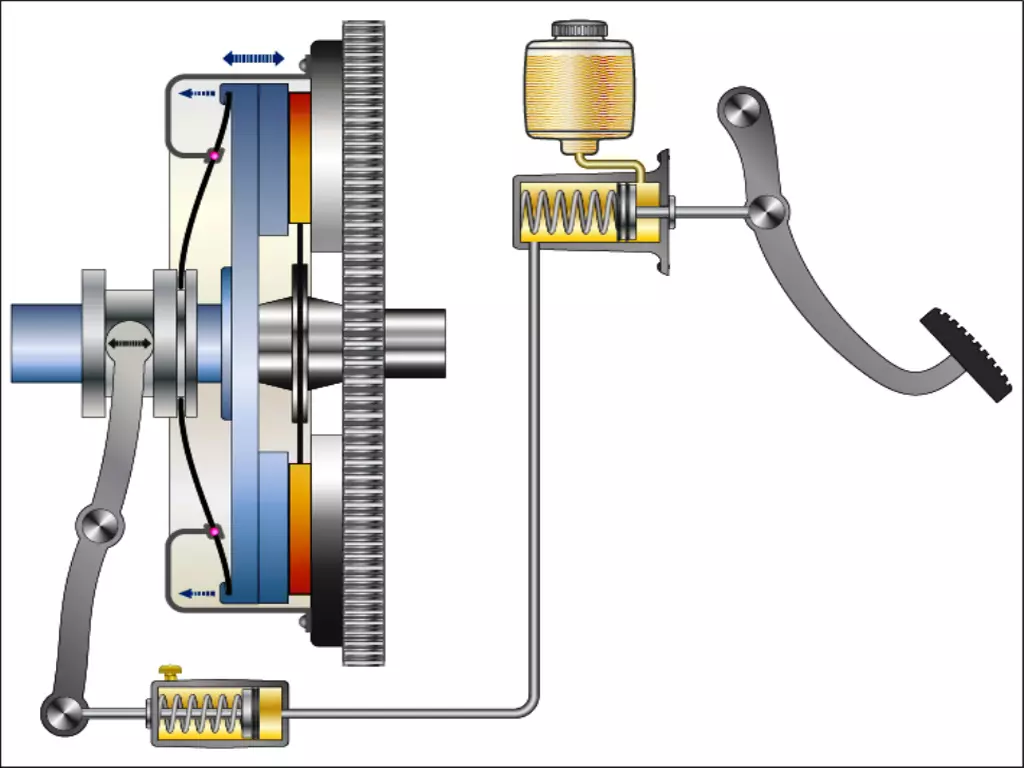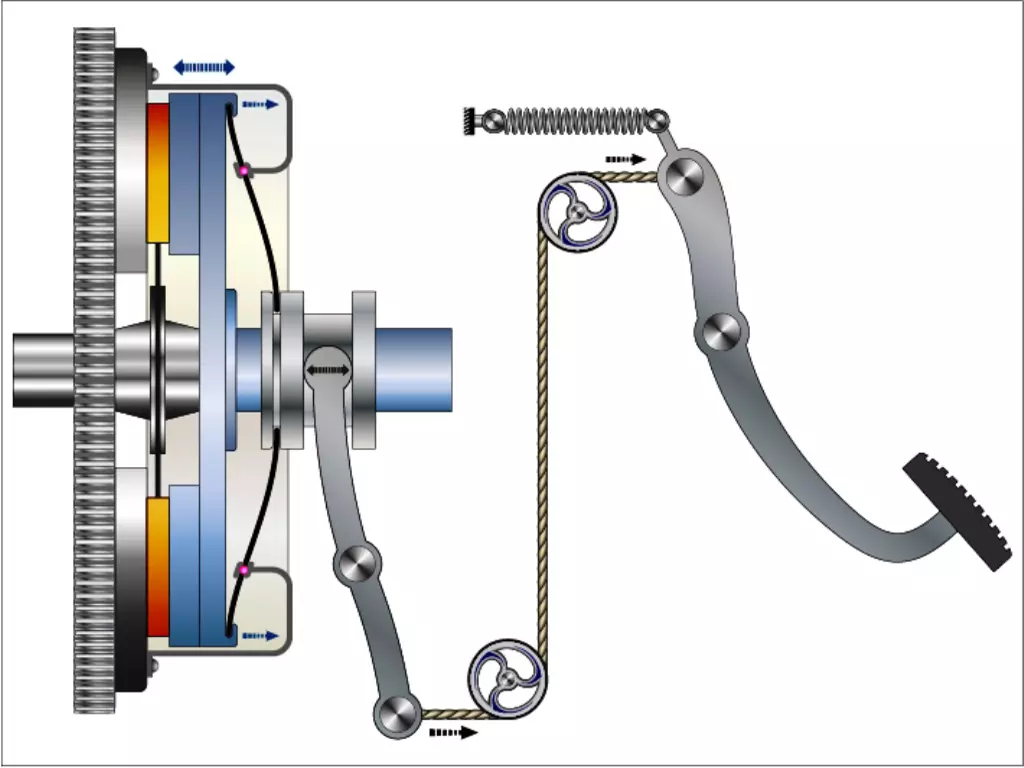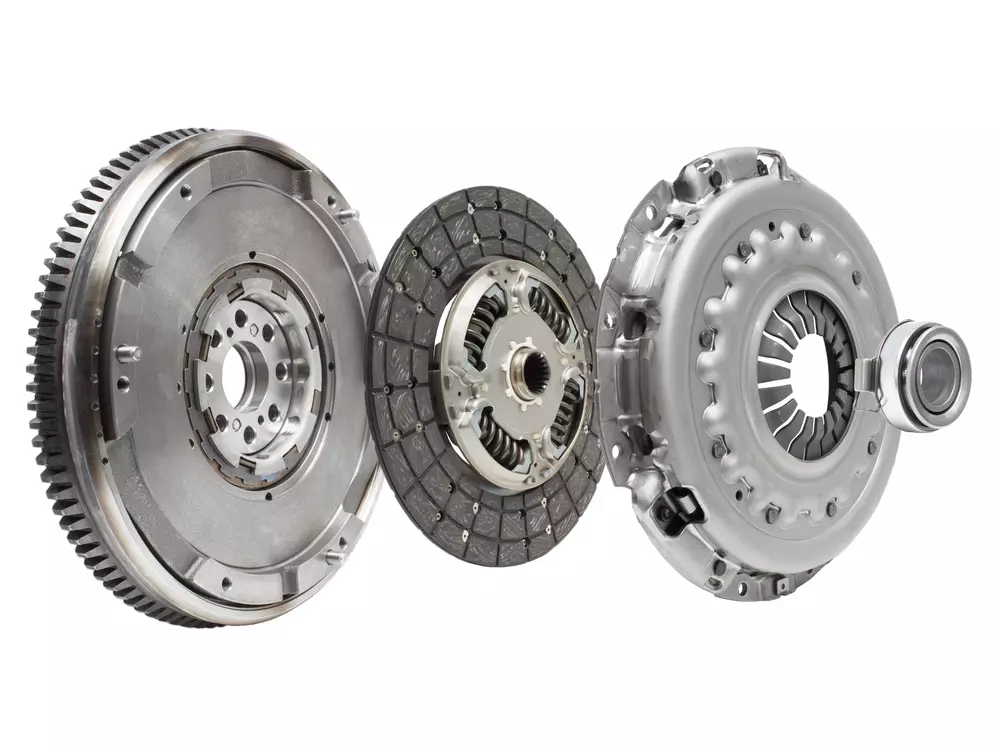
Clutch troubleshooting is actually pretty easy. Just be patient and logical.
There are several ways that the clutch in your car can go wrong, but once you understand the parts, and how they interact, finding and fixing the problem should be easy. There are two basic ways a clutch fails - it either fails to disengage, or fails to engage fully.

Clutch fails to disengage when pressed
In normal, modern stop-and-go driving, you probably press the clutch pedal in every few seconds. And on that one time when you press it and the car still creeps forward, you know you have a problem. Sometimes a part fails and the clutch goes from working normally, to not working in an instant. Other times it is a gradual deterioration. Each of these failure modes has different causes, and how it failed can be a big help in figuring out how to fix it.
Sudden Failure
- Broken/loose clutch cable
- Broken/loose linkage
- Failed hydraulic master/slave cylinder
- Leaking hydraulic line
- Improper fit of throwout bearing with pressure plate
- Disc contaminated with foreign material
Gradual failure
- Stretched cable
- Bent linkage
- Failing master/slave cylinder
- Low hydraulic fluid
- Broken motor/transmission mount

Clutch fails to engage properly
A clutch that doesn't engage fully, or slips under heavy load, is the normal symptom of a worn out friction disc of pressure plate that has lost its tension. When you press the clutch pedal to disengage drive and change gear, the resistance you feel is the diaphragm spring that presses the friction disc to the flywheel. If the spring pressure is not great enough, or the clearance between all the parts is too great, there won't be enough friction to transmit the power from the motor to the transmission. Friction discs wear and get thinner, and springs get weaker with time and use, which is why all clutches eventually start to slip. The sudden onset of a slipping clutch usually indicates that an oil leak, or something else has contaminated the friction surfaces.
Clutch does not engage at all
- Binding in linkage or cable due to corrosion
- Bent linkage
- Seized slave cylinder
- Seized throw out bearing
- Failed pressure plate diaphragm
- Failed friction plate
Clutch slips under load
- Poorly adjusted cable/linkage
- Normal friction plate wear from use
- Glazed friction surfaces from slipping
- Worn flywheel friction surface
- Weak pressure plate diaphragm springs
- Leaking engine rear main seal
- Leaking transmission input shaft seal
- Warped/overheated pressure plate or flywheel.

Other clutch issues
Beside not engaging or disengaging, there can be other issues as well, such as noisy operation, or chattering on engagement. On older mechanical linkages, lack of periodic lubrication can lead to high effort or binding in pivots or cables, or a pedal that does not return smoothly. A bad throwout bearing can be a major headache in stop and go traffic, making horrible noises every time the clutch pedal is depressed. These are often annoyances more than anything else, especially since fixing them often involves removing the transmission/transaxle to get to the parts.
Chattering
- Burned or glazed friction surfaces
- Oil on friction disc
- Loose engine or transmission mounts
- Worn splines on clutch disc hub
- Warped pressure plate or flywheel
- Worn pilot bearing
Squeal or rumble when pedal pressed
- Bad throwout bearing
- Failing pressure plate
- Bad pilot bushing
Rattle or clicking from clutch
- Loose clutch release fork
- Faulty throwout bearing
- Low engine idle speed or rough idle
- Worn friction disc splines
High pedal effort
- Linkages in need of lubrication
- Binding cable
- Binding pedal pivot
- Bad throwout bearing
- Faulty slave cylinder
- Faulty pressure plate
Clutch pedal fails to return
- Binding pedal pivot
- Faulty clutch cable
- Failed return spring
- Bad pressure plate
- Binding throwout bearing